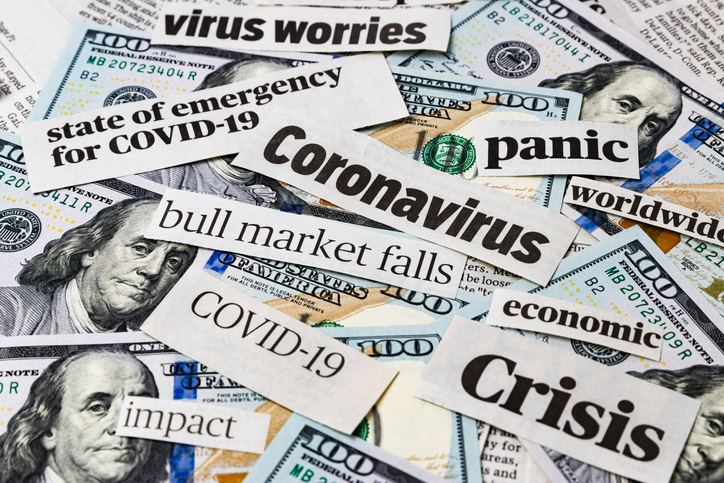By Randall Coleman, Portfolio Manager
May you live in interesting times. Is that a blessing, or a curse? The day after Thanksgiving is notoriously boring in the stock market. It is a short, early close day, and typically volume is very light. Usually, nothing interesting happens. Since 1928, two-thirds of the 93 Black Fridays saw an average gain of 0.660% in the S&P 500, while one-third saw down days averaging -0.747%. Pretty boring, until, of course, Covid of the Omicron variety reared its ugly head. 2021’s edition of Black Friday saw the biggest day-after-Thanksgiving market decline in 90 years, second only to 1931’s 2.31% decline. Markets sold off sharply around the globe, commodities were slammed with crude oil taking the biggest hit (-13%) as investors reeled from the potential threat of a new virulent Covid strain. Are we doomed (again)?
Hand-in-hand with big market moves comes a spike in volatility, measured by the VIX, the CBOE Volatility Index. This index is commonly known as the Fear Index and measures the market’s expectation of volatility in the near future. Not surprisingly, the VIX leapt to its highest reading since May and ended the day at its highest level since February 25 and its sixth highest closing value of 2021. Below are two graphs of the VIX, the first represents the past year and the second is a long-term representation over 30 years.

VIX Year-to-date

VIX over 30 years
I would like to draw your attention to several points. Every time volatility has spiked and even stayed at an elevated level for a period of time, it has always subsided. Yes, it can stay elevated for months and years, but it has always returned to a more normal, or calm, level. Higher periods of volatility are frequently periods of extended market decline. Higher volatility equals higher fear. Fear peaked in October 2008, with the VIX measuring over 60 for most of the month, but the market didn’t find its bottom until March 6, 2009, when the VIX had dropped to the 40-50 range. Short-term jolts cause short-term corrections, while long-term trends take months to make themselves apparent. The point is that market sentiment takes a long time to change direction. Often (May 11-13, July 19-20, August 18-20, September 20-21 e.g.), short-term spikes subside just as quickly as they crop up.
The “potential” threat of the Omicron strain dealt a savage blow to crude oil prices as well as stocks. US crude fell more than $10 a barrel, or -13% on the day. While that move put a big dent in energy-related stocks, it also took a big chunk out of future gasoline prices. For drivers in California, where $5/gallon prices are common now, that’s decidedly good news. There are two sides to every equation.
Are we in an endless cycle of Covid mutation-flare up-lock down? I’m not a doctor, and I don’t play one on TV, so I can’t answer that question. What I do know about is investing in stocks. Stock prices go up and down. Fear levels go up and down. Investing in stocks is a pathway to financial goals and getting there is not a straight line. Indeed, stocks climb the Wall of Worry and the historical experience is that stock values move higher over time.
Call it a slap in the face or a wake-up call. It is good to get reminders occasionally that the market is not a linear progression. Risk matters and that’s why we at ACM take such care with our clients’ portfolios.
We live in interesting times and I’ll take that as a blessing.

The Risk-on, Risk-off Teeter Totter
The foregoing content reflects the opinions of Advisors Capital Management, LLC and is subject to change at any time without notice. Content provided herein is for informational purposes only and should not be used or construed as investment advice or a recommendation regarding the purchase or sale of any security. There is no guarantee that the statements, opinions or forecasts provided herein will prove to be correct. Past performance may not be indicative of future results. Indices are not available for direct investment. Any investor who attempts to mimic the performance of an index would incur fees and expenses which would reduce returns. Securities investing involves risk, including the potential for loss of principal. There is no assurance that any investment plan or strategy will be successful.






LATEST ARTICLES